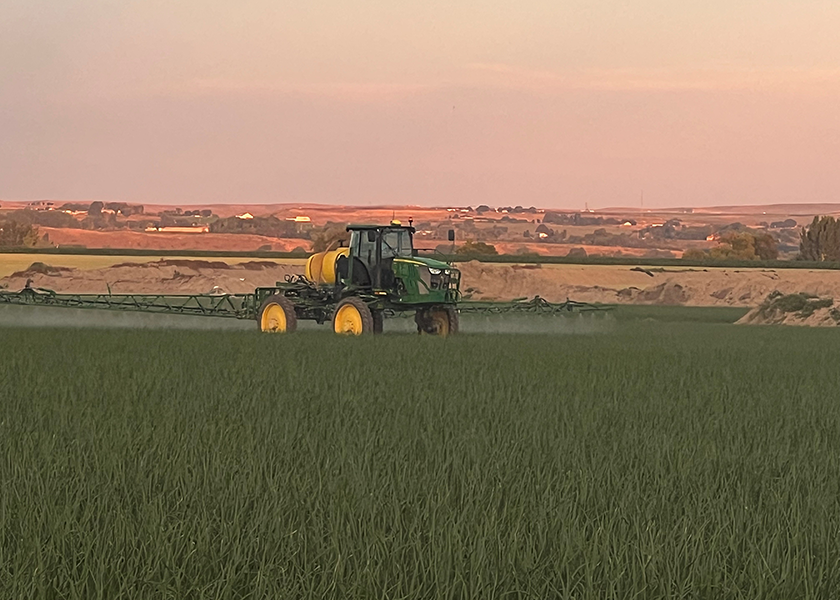Idaho-East Oregon onion growers say sustainability matters

Whether it’s accommodating suggestions from customers or following through with their own initiatives, onion grower-shippers in East Oregon and Idaho say they take sustainability seriously.
“Sustainability is the new trigger word,” said Bailey Meyers, agritourism and marketing manager for Owyhee Produce, Parma, Idaho.
“It’s definitely something that select customers are looking for because they know consumers are interested in it,” she said.
Most produce buyers list specific requirements that can cover everything from the farming side to the shipping side of a supplier’s operation, and those requirements typically include sustainability, Meyers said.
Owyhee Produce has instituted sustainable growing practices, like drip irrigation, she said. The company also balances soil health by rotating crops and conducts research with its seed provider to develop onion varieties that, for example, produce good yields and minimize the number of times workers and equipment must go into the field.
Nyssa, Ore.-based Eagle Eye Produce posts key sustainability initiatives on its website and distributes sales materials describing its sustainability efforts, said Dallin Klingler, marketing and communications manager.
“We’ve been doing a better job of communicating the things we’re already doing in the field, the packing facility and the community,” he said.
Related: The rise of regenerative — Key concepts to understand an emerging movement
Its website lists several key initiatives the company developed to achieve environmental sustainability, including water conservation, energy independence, regenerative growing practices, efficiency in fuel and energy, sustainable packaging solutions and community outreach.
When customers ask what Payette, Idaho-based Riverfront Produce Co. LLC is doing to be sustainable, the company points out many ways it strives to provide a safe, healthy and tasty product, said Nick Gomeza, who handles sales.
For example, Riverfront Produce is Good Agricultural Practices (GAP) certified and adheres to the safest growing practices, he said.
Sustainability is made up of three pillars, said Josh Frederick, CEO at Snake River Produce Co. LLC, Nyssa, Ore.: the economy, society and the environment — or in other words, profit, people and planet.
Quality, service and excellent communication allow Snake River Produce to be successful and sustainable, Frederick said.
Related: Meet the seed-breeders and change-makers driving trends in cultivation
For example, the company offers an in-house transportation service with partner Murray Logistics Corp., Austin, Texas, to provide a one-stop shop for its customers.
Running a sustainable operation can be expensive, but that doesn’t deter onion grower-shippers.
“It cost lots to be sustainable,” said Gomeza of Riverfront Produce. “We hope to recover those costs by first and foremost having a domestic product to offer the consumer ahead of an imported good that they can’t count on being safe and healthy.”
Although it’s costly to produce onions sustainably, “you have to hope that the end product is worth more,” said Meyers of Owyhee Produce.
“A farmer is going to take care of his land no matter what, because without healthy land, they can’t produce what they want or need,” she said.
Unfortunately, the market as a whole is not always willing to accept the cost of sustainable advances like compostable packaging, said Klingler of Eagle Eye Produce.
“It’s up to our suppliers to get the cost down on the packaging,” he said. “Once they do, I feel like the market will start accepting it.”
Learn: More about onions from PMG







